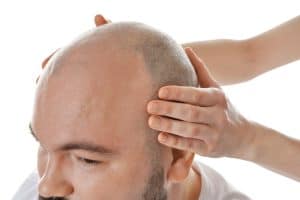Scarless Hair Transplant in Dubai have become increasingly popular due to their minimally invasive nature and ability to produce natural-looking results without visible scars. However, not everyone is a suitable candidate for this advanced hair restoration technique. In this guide, we will discuss the characteristics that make someone an ideal candidate for scarless hair transplants and how to assess your suitability for this procedure.
Understanding Scarless Hair Transplants
Before diving into the criteria for ideal candidates, it’s essential to understand what scarless hair transplants involve. The most common methods, Follicular Unit Extraction (FUE) and Direct Hair Implantation (DHI), focus on extracting individual hair follicles from the donor area and implanting them into areas experiencing thinning or hair loss. These methods leave tiny, dot-like scars rather than the linear scars associated with traditional hair transplant techniques.
Ideal Candidates for Scarless Hair Transplants
While scarless hair transplants are beneficial for many, certain characteristics make some individuals better suited for the procedure. Here are the primary factors to consider when determining candidacy:
1. Extent of Hair Loss
Candidates should have a clear pattern of hair loss that can be effectively treated through hair transplantation. Ideal candidates often fall into one of the following categories:
- Androgenetic Alopecia: This genetic condition, also known as male or female pattern baldness, is the most common cause of hair loss and responds well to hair transplant procedures.
- Alopecia Areata: Individuals with this autoimmune disorder may also be suitable candidates if they have stable areas of hair loss.
2. Quality and Density of Donor Hair
The success of a scarless hair transplant heavily depends on the quality and density of the donor hair. Ideal candidates typically have:
- Sufficient Hair Density: A thicker donor area allows for more follicle extraction without significantly thinning the donor site.
- Healthy Hair Follicles: Donor hair follicles should be healthy and capable of growing in the recipient area.
3. Age and Hair Loss Stability
While there is no strict age limit for scarless hair transplants, younger patients may not be ideal candidates due to the potential for further hair loss. Factors to consider include:
- Age Range: Candidates between 25 and 65 years old are generally the best suited, as hair loss patterns are often more predictable in this age group.
- Stable Hair Loss: Candidates should ideally have a stable pattern of hair loss, as ongoing hair loss can affect the longevity of transplant results.
4. Health and Medical History
Good overall health is a prerequisite for any surgical procedure, including hair transplants. Ideal candidates often exhibit the following characteristics:
- No Significant Medical Conditions: Candidates should not have conditions that could interfere with healing, such as uncontrolled diabetes or autoimmune disorders.
- Non-Smoker: Smoking can negatively impact blood circulation, affecting healing and results. Non-smokers or those willing to quit are typically better candidates.
5. Realistic Expectations
Candidates should have realistic expectations regarding the results of their scarless hair transplant. Key considerations include:
- Understanding the Procedure: It’s crucial for candidates to be informed about the procedure, recovery time, and potential outcomes.
- Long-Term Commitment: Hair transplants do not stop the aging process or future hair loss. Candidates should be prepared for possible future treatments to maintain their desired appearance.
6. Psychological Readiness
Candidates should also be emotionally and psychologically prepared for the procedure. Ideal candidates often:
- Have a Positive Mindset: An optimistic outlook can lead to higher satisfaction with the results.
- Are Motivated for Change: Candidates should be genuinely interested in improving their appearance and self-esteem through hair restoration.
Conclusion
Scarless hair transplants are an excellent option for individuals seeking to restore their hair without the drawbacks of traditional techniques. However, understanding whether you are an ideal candidate is essential for achieving the best results. Factors such as the extent of hair loss, the quality of donor hair, health status, realistic expectations, and psychological readiness all play a significant role in determining candidacy.
If you are considering a scarless hair transplant, consult with a qualified hair restoration specialist who can assess your unique situation and help you make an informed decision about the best path for achieving your hair restoration goals.






Comments